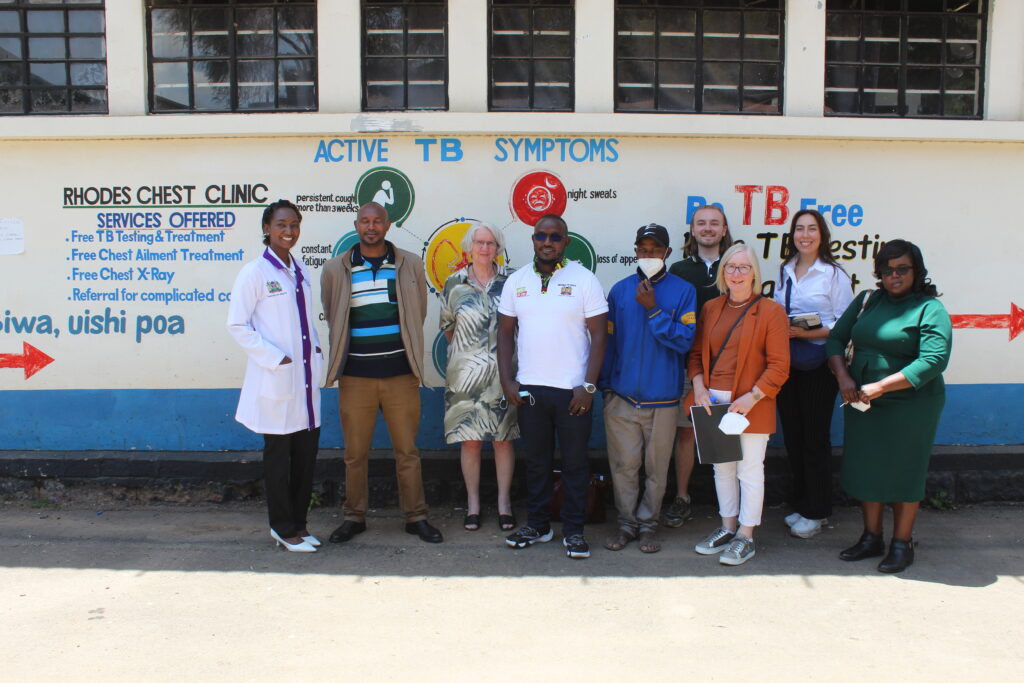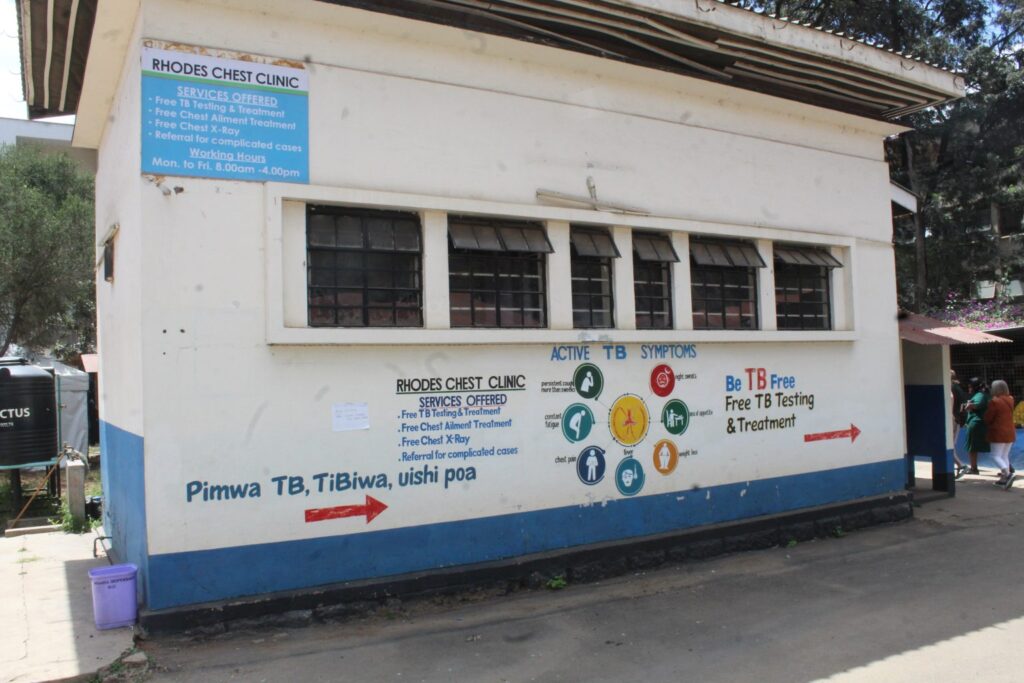Ending tuberculosis together: A whole of society approach
This is a guest post by Sahera Ramzan, Senior Policy Advocacy Officer for Tuberculosis (TB) at Results UK, an organisation working to create the public and political will to end global poverty.

A Results UK delegation on a visit to Kenya in 2023. The parliamentary team took a delegation of parliamentarians to visit Kenya alongside KANCO. Photo: Michael Nwangi, 2023
Tuberculosis (TB) is the world’s deadliest infectious disease. TB is a preventable and curable disease but still affects 10 million people a year and killed 1.3 million in 2022. Ending the TB epidemic is part of the United Nations Sustainable Development Goals for health and well-being. Although progress has been made over the last two decades, the rate of progress has been too slow to end the TB epidemic. Each year, World TB Day is marked on 24 March to increase awareness and bring attention to the devastating health, social and economic impacts of TB.
TB disproportionately affects vulnerable groups
TB is a public health epidemic fuelled by inequality and influenced by the social and economic determinants of health. The circumstances in which people live, grow and work can increase their risk of developing and transmitting TB. Overcrowded conditions with poor access to water, sanitation, hygiene facilities and limited ventilation are a breeding ground for TB bacteria. Individuals with poor immune systems caused by ill health or undernutrition increase their risk of developing TB in such conditions. Individuals who are marginalised by their circumstances, such as living in poverty, being in prison, being homeless, or being members of displaced populations, have an increased risk of developing TB.
Challenges in diagnosing and treating TB
The lack of progress in detecting, diagnosing and treating TB is impeding countries’ abilities to reduce the TB burden. Inadequate healthcare infrastructure, limited access to diagnostic tools, and challenges in implementing effective treatment and prevention programmes hinder TB progress in many regions of the world.
The stigmatisation of TB – both the people affected and the disease itself – can create additional barriers for people to access healthcare, leading to delayed diagnosis and treatment. Having TB can push people further into poverty due to the costs of medical visits, medications, travel and food. This can affect people’s ability to continue and complete TB treatment, leading to poor health outcomes and risks for ill health and mortality.
One of the main challenges in reducing the global TB burden is a lack of political will and financing for countries most in need.

Whilst in Kenya, the Results UK delegation met with FCDO officials in the British High Commission, visited TB, child health and nutrition programming and met with MPs in the Kenyan Parliament. Photo: Michael Nwangi, 2023
Addressing the root causes of TB
A new report from Results UK, ‘Stigma kills: Why medicine alone won’t end TB’, explains how factors beyond healthcare, such as poverty, food insecurity, poor living conditions, stigma and discrimination and lack of social protection, have a far greater impact on health outcomes than healthcare alone. The report makes the case for addressing the social and economic determinants of health, the risk factors and the underlying causes of TB.
Current approaches to ending TB are centred on medical interventions, such as drug treatments to treat the physical disease. While necessary, these interventions do not address the root causes of TB – poverty, undernutrition, poor living conditions and stigma. Social interventions are required alongside medical interventions if we are to fully end TB. Health policies must integrate social and medical interventions as a standard package of care for all people with TB if we are to achieve health equity.
Taking a health equity approach means tackling the inequitable distribution of power, money and resources to improve living conditions. The report recommends interventions that governments, national TB programmes, policymakers and multisectoral stakeholders can take to reduce the TB burden.
Moving to an equity-focused approach requires political leaders and policymakers to have a mind-shift to value health as a global public good, collaborate across sectors outside of health, and place equity as a core value in ending TB. Addressing the root causes of TB requires a ‘whole of society’ approach. This means involving everyone in a society or community to work towards a common goal or issue. This includes civil society organisations, affected communities, businesses, academics, the health sector, governments, the media and others. The approach goes beyond institutions to influence and mobilise local and global communities and relevant policy sectors. This in turn can build resilient communities able to withstand threats to their health and wellbeing.
A whole of society approach does more than just improve health outcomes; it has the power to influence the overall development of nations through economic productivity, social cohesion and fairer communities, where everyone has the opportunity to thrive and no one is left behind.
